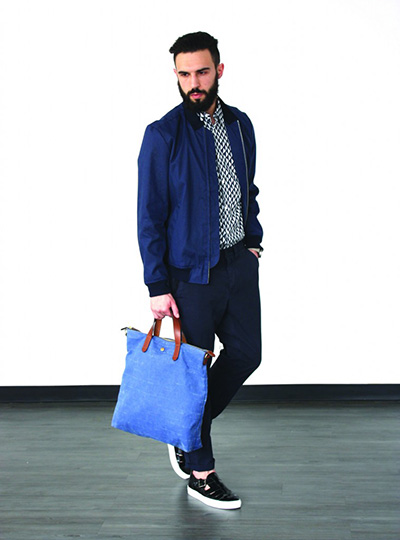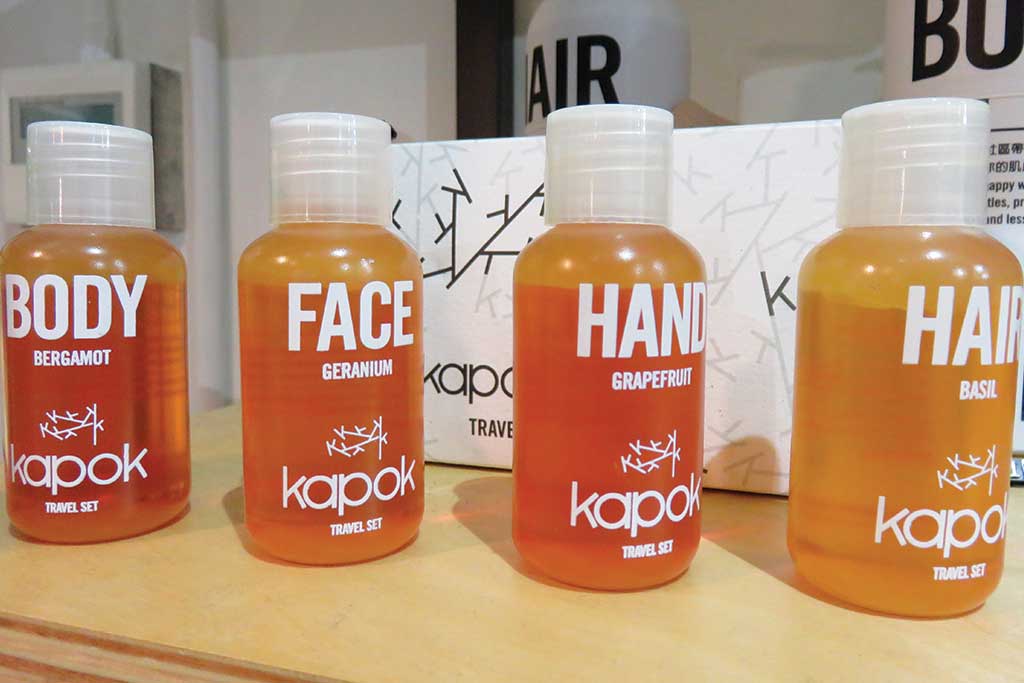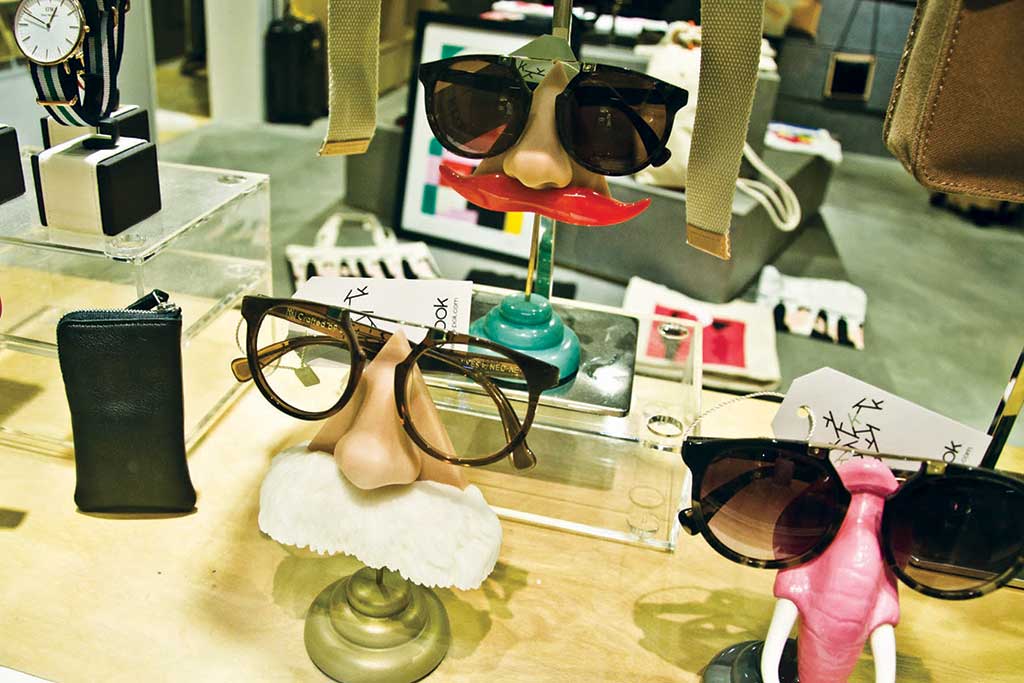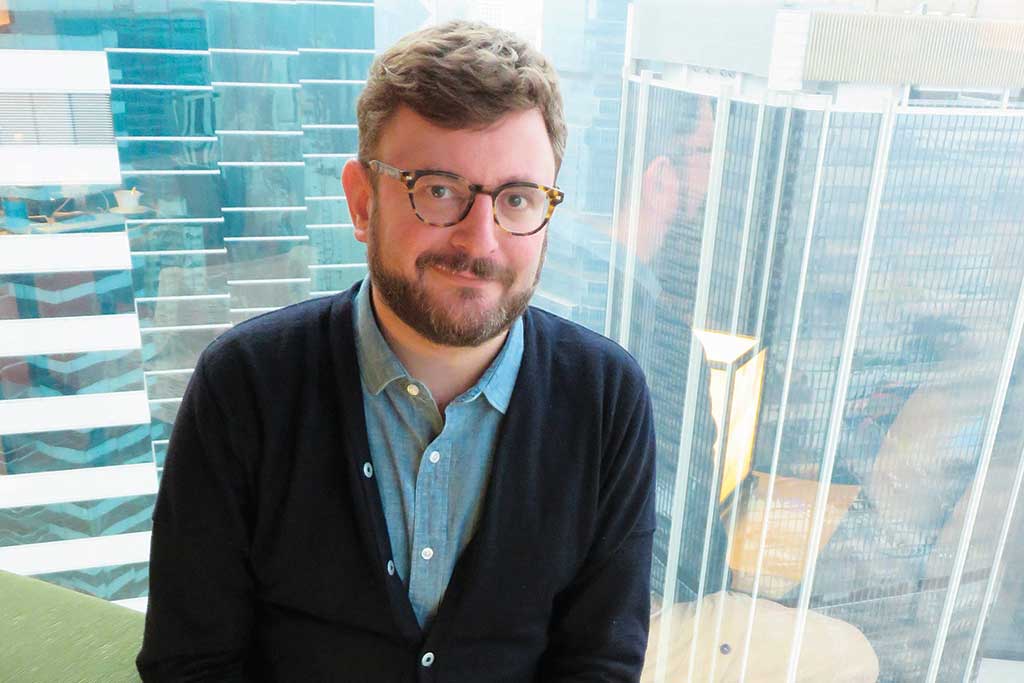In some countries, it takes a little longer to embrace the concept of “think local.”
Case in point: Hong Kong, whose denizens and millions of tourists treasure top-of-the-line international brands and imports above all else. Mainland Chinese in particular have flocked here for decades exclusively to load up with Louis Vuitton, YSL, Armani, and other designer goods. However, the landscape has finally begun to change with locally crafted products being spotlighted in retail and gallery spaces, including artwork, clothing, home items, and accessories (not only that, farm-to-table is starting to catch on, with organic farms and producers cropping up in the New Territories).
April 2014 saw the hotly anticipated opening of Hong Kong Island’s PMQ (35 Aberdeen St., Central. www.pmq.org.hk), a pair of four-story heritage midrise buildings turned complex of 100+ shops, cafés, restaurants, galleries, and studios dedicated to local brands, designers, and “create-preneurs.” One of PMQ’s highlights, and largest shops, is kapok–crafted in Hong Kong, the latest branch from nine-year-old Hong Kong–based concept store, kapok (www.ka-pok.com).
“Ten years ago, even Hong Kong people looked down on Hong Kong brands,” says Arnault Castel, openly gay kapok founder. “They thought it was low quality. Now it’s totally changed. You can produce whatever you want and the quality is quite similar to what you can find in Europe, and there are a lot of talented people here.”

In the vein of concept shops and lifestyle brands Monocle and Opening Ceremony, both of which are popular with gay shoppers (the latter stocks shirts with sexy Japanese “bear” imagery), kapok represents an intensely curated trove of quality lifestyle and designer goods difficult to find elsewhere. kapok has also spread across Asia over the past few years, with stores in Hong Kong, Japan, Taiwan, and Singapore, each stocking a mix of European and, most importantly, Asian products.
“Now that we have thirteen stores between four cities we get to know local designers in each, and the next step is to bring these products to the other stores,” Castel notes. “I noticed Asia always looked to Europe, Paris, Milan, and New York, but was not curious about their neighbors. Now people in Singapore are curious about Hong Kong, Taiwan, Korea, while still looking at Europe.”
The PMQ kapok is particularly Hong Kong-centric, as stated in its subtitle “crafted in Hong Kong.” Here you’ll find kapok-branded lemon peel and mint dark chocolate bars, a collaboration with HK’s artisanal chocolatier, Choco Choco (www.chocochoco.com.hk); kapok grapefruit and geranium liquid soaps; bags and accessories from Hong Kong’s Seventy Eight Percent (www.seventyeightpercent.com) and two-year old label Quantitative Process (www.facebook.com/quantitativeprocess); and quirky English-language Hong Kong magazine BITE ME (bite-meee.com), each art-filled issue dedicated to a bodily-related theme. The debut issue was about butts.
This sort of merchandise has helped garner boldface name customers like Hong Kong singers/actors Tony Leung, Gigi Leung, and Hins Cheung, and North America’s Rashida Jones and Mos Def. Kapok has also collaborated on exclusive co-branded goods with Nordic bag brand Mismo (including a backpack, iPad pouch, and shoulder bag), and New York’s Joya (a Basalt Island-inspired scented candle, tote bag, and Kay Lam-designed iPhone 6 case).
Yet while local definitely has an edge when it comes to Castel’s curatorial duties and buying, he ensures that he applies the same standards and scrutiny as with all kapok merchandise. “I remember a Taiwanese brand that wanted to sell me candles shaped like baby heads,” he recalls, amused. “I understand baby heads are cute and candles are cozy, but the effect when you light up the candle and the baby head starts melting is one of the creepiest things I have ever experienced! Sometimes these things are nice, but not for our customer.”


Soon to celebrate his 20th anniversary as a Hong Kong expat, Castel hails from Perpignan in the south of France, close to Spain’s border. After studying in Paris, he was faced with serving a year in France’s at-the-time compulsory military service. He instead opted for an 18-month overseas work program and requested placement in Asia, Hong Kong specifically, for a change of scenery. A year and a half later, smitten with the city, new friends, and a feeling of personal freedom, he decided to stay and work in banking.
Castel admits that Hong Kong’s concentrated yet lively gay nightlife scene, and its international crowd, thanks to the significant expat population and nonstop influx of tourists seeking a fun time, was also a reason to stay, and he spent much of his 20s partying at clubs and bars well into morning. By 2004, he settled down a bit, with a physician boyfriend, Joe, whom he met through friends. They’re approaching their 12th anniversary.
One thing about Hong Kong that Castel disliked, however, was its big brand fixation and lack of small, interesting boutiques like the ones he discovered while traveling in other cities. “I realized that I never shopped in Hong Kong, because the malls are all the same,” he recalls, “so I thought, ‘maybe I can create the same atmosphere I find on my trips.’”
In 2006, Castel opened a showroom in a Tin Hua district walk-up building. At the time, the neighborhood was largely residential (nowadays it’s on the hipster side, boasting plenty of cool eateries), with offices for small ad agencies and production houses. Castel filled this prototype kapok with vintage furniture and items he sourced while traveling, and threw biweekly parties to stoke excitement and buzz, serving as the DJ. The Hong Kong press proved supportive, helping draw traffic to this off-the-beaten-path space. “I think they were also really bored, and that helped me a lot,” Castel laughs.
Two years later, the Tin Hua building was demolished, and Castel found a new shop space on Star Street in Admiralty, which was starting to become trendy thanks to its slightly hidden, leafy location close to the Pacific Place shopping center and a bustling main artery. At this point, Castel realized his passion truly lay in retail and, with two partners, threw himself into kapok entirely.
From there, kapok spawned four more Hong Kong locations, and in the past few years expanded to Japan, Singapore, and Taiwan. Today, Castel travels constantly to seek out and buy new products, and keep tabs on the shops. While expansion to even more cities abroad is possible down the line (to France, as a sort of homecoming, and Los Angeles because “French people love L.A. in general, I don’t know why!”), for now, Castel feels that the four destinations are the limit.
“I think retail is very hands-on,” he explains. “It involves a lot of travel. You need to go and check the visuals are well made. You can’t sit in an office and hope everything will be okay. I visit all the shops personally. I started the shops because I found the chains boring, and if I open in too many cities too fast I will need to standardize everything and kapok will become a chain store.
On what sets kapok apart from concept shops/brands like Monocle (their Hong Kong location is steps from Star Street) and Opening Ceremony (whose co-founder, Humberto Leon, is also gay), Castel says, “we’re maybe less fuss, more approachable than Monocle. It’s casual but a bit chic at the same time. Opening Ceremony is more about trends. It’s very in-the-moment, and changing every six months. Simplicity, modesty, and functionality have been the core values of kapok, and our tagline is ‘Future Classics.’ It’s not so important to spot the trend that will last only three months. The things you buy in our store are more long-term.”


Castel also explains that each kapok location is specifically tailored to its city and, in some cases, a site-specific theme. While you may find wristwatches from Germany’s Junghans and home items by France’s Astier de Villatte in both the Osaka and Hong Kong kapoks, you’ll note differences in their overall stock and concepts.
“In each country we need to be different,” Castel elaborates. “We need to be more humble and adapt to every market. Japan’s retail scene is very sophisticated. I feel Tokyo has some of the best stores in the world, and we need our A-game to stand out. They source product from everywhere and find very niche brands, and the service is very strong so there’s more competition. You need to find a target and identity, so we’re more focused on menswear and younger for Japan. It’s a little bit different every time, the products and the price point.”
As far as his favorite destinations for seeking out future classics to stock, Castel says that France and Denmark are virtual treasure troves: in late 2015 Hong Kong will see opening of a Scandinavian aesthetics-centric “kapok Nordic” shop in the Tsim Sha Tsui district’s Star House building.
While LGBTs enjoy no legal protections in Hong Kong, and many feel that same-sex marriage is at best a pipe dream or, more cynically, a flat-out fantasy (an August 2014 South China Morning Post article shined light on how some talented LGBT expats are decamping from or unwilling to take jobs in Hong Kong due to this second-class citizen legal status), Castel insists that he has never suffered discrimination because of his sexuality. Also, there is a social infrastructure (Hong Kong has an annual gay pride and film festival, plus a Fruits in Suits group for LGBT professionals).
“At the end of the day, because we are integrated with Mainland China, I feel like there is no hope in my lifetime for gay marriage,” he muses. “For some people I understand it’s a big issue, and they want to move to a place where it’s easier. Personally, I can live a life where I am happy here. When I was working in banking, 19 years ago, I could not really be out. It was a very macho kind of culture. Now, a lot of banks have gay groups and communities and it seems much easier. So I think [the legal situation] is not right, but I still can live my life as I want. Maybe I’m just very pragmatic, like the people here.”


Besides his regular retail and work-centric jaunts, Castel and his boyfriend take annual long-haul vacations to destinations they haven’t yet visited (Greece was a recent one), and scuba expeditions in Indonesia and the Philippines. Asked about his favorite hotels around the world, Castel cites Hong Kong’s Andre Fu-designed Upper House, where this interview took place (and a short walk from kapok Star Street); Paris’ Hotel Particulier, because “it’s so quiet and green, and you feel like you’re staying in an artist’s home”; and South Utah’s Amangiri, of which he says, “the setting is spectacular and the way the hotel is integrated with nature.”
Yet Castel harbors no plans to uproot from his Hong Kong home, in part thanks to its pockets of nature, beaches and hiking trails tucked just behind the iconic skyscrapers and mountain peaks, and the food, especially Dim Sum at venues Mott32 and Island Tang.
“I also love casual Japanese-inspired places like Ronin and Yardbird,” he adds. “Serge et le Phoque for creative French food, and The Principal for imaginative fine dining. In Singapore, there’s a really fun, delicious place near our store at national design center called Artichoke. In Taipei, I won’t take risks and always recommend the legendary Din Tai Fung for soup dumplings. In Tokyo, Sasha Kanetanaka is delicious and light and is designed by my favorite Japanese photographer, Hiroshi Sugimoto. It’s especially [wonderful] in spring and autumn when the sliding windows are opened. It’s a soothing, beautiful experience.”


